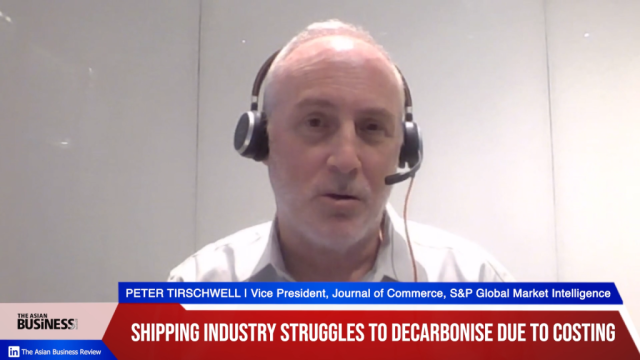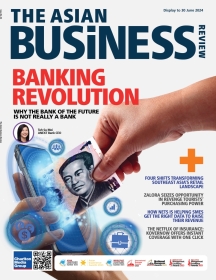
Proper roadmap essential in looking at customer experience’s critical elements, says EY partner
Sam Lo identified this key factor as what will help organisations understand what they need to improve on.
Sam Lo is EY Asean Private Assurance Leader. He leads a team in the firm’s assurance practice, serving emerging enterprises and private middle market clients.
He has helped many clients with financial and corporate management and has showcased his wide experience in external and internal audits of private and listed enterprises, MNCs, as well as government and quasi-government organisations across diverse sectors, which include manufacturing, trading, technology, retail and wholesale, investment holding, oil and gas, shipping, transportation, real estate, construction, and professional services.
Moreover, Lo has vast experience in the commercial sector, dealing with corporate strategy and business development, M&As, venture management, corporate governance, financial accounting and reporting, and risk management.
He holds a Bachelor of Accountancy (First Class Honours) from Nanyang Technological University, Singapore; and is a fellow at the Institute of Singapore Chartered Accountants.
With the rapid shift in technology and a very demanding market, Lo said that having a proper digital roadmap will help struggling organisations clarify what they need to work on, identify the tools to enable their capabilities, and eventually fine-tune and achieve their goals.
Speaking with Asian Business Review to join the Asian Experience Awards judges’ panel, Lo discusses how technology adoption and unprecedented workforce disruptions are causing challenges for businesses to deliver a satisfactory customer experience. He also highlights the need to look at other aspects that are also important in providing a better customer experience, such as the collection of data and information.
How do you think the business landscape has changed since the onset of the pandemic in terms of delivering an outstanding customer experience? Are there any trends to watch out for?
There is no doubt that the global pandemic has changed our experiences forever. It has changed the way we live, work and do business.
During the pandemic, most businesses saw short-term disruptions and uncertainties, bringing operational and financial challenges, and had to quickly look into ways to address the needs of their customers, people and suppliers.
With the improvement of the situation this year, many businesses are now rethinking whether they can rebuild or refresh their business strategies and accelerate digital transformation. Continuing from the practices during the pandemic, many businesses are also implementing digital and innovative solutions to enable employees to work remotely, connect and serve customers through digital means and leveraging on digital solutions to carry out day-to-day tasks and routines.
As they implement these changes, it is interesting to note that agility and strong communications are the differentiators that allowed some businesses to respond more effectively than others.
For the longer term, businesses are thinking beyond growth and into long-term sustainability. With costs escalating fast in the post-pandemic world, it is clear that businesses need to focus not just on recovery, growth and margins, but on how to continue to innovate and reinvent so they can continue to be relevant and appeal to customers.
From the projects that I have reviewed during the judging, I see that a number of businesses are exploring better ways to work with their alliances and partners, forging better working relationships and experiences. They are doing this not just for digital transformation, but they are starting to seek avenues to participate in the digital ecosystem and build better digital capabilities to improve customer and people experience.
How do you think companies’ digital transformation initiatives can help in making the customer experience more unique and seamless?
Digital transformation is about using digital capabilities to enhance the productivity of the organisation and help employees to deliver better customer service and experience.
But that is only one aspect of the value chain. The digitalisation of processes also enables the generation and collection of data and information. This allows companies to have a better understanding of their customer's behaviour, changing needs and expectations to tailor their products and services to meet consumer demands. Digitalised communication tools and solutions can also support customer communication, helping to deliver an improved customer experience.
Digital transformation has also changed the way companies operate and explore innovations in growing new revenue streams and bringing new experiences to customers.
Aside from maximising their digitisation initiatives, are there any other initiatives or opportunities companies can explore to ensure growth and success?
Over the past two years, one major challenge many businesses faced was workforce disruption. The pre-pandemic workplace arrangement that many were used to has obviously changed. Notably, companies had to deal with the sudden shift to remote working during the initial phase of the pandemic, and moving to the hybrid work arrangement that we are seeing now.
Beyond working arrangements, given the tightening talent pool, developing agile people strategies – particularly in addressing their skills gaps – is equally important in ensuring that companies can continue to grow. This is also aligned with the need for workforce upskilling that many governments are trying to encourage. Lifting the capability of the workforce, it will help the local communities and their families to improve their financial and general well-being, which will feed into the sustainability of local businesses as people will have the means to consume more.
In terms of digitalisation, given the unprecedented acceleration in digital space, incumbents in Southeast Asia are turning to strategic decisions – i.e., buy, build or partner – to enhance their digital capabilities. Organisations are investing more in areas such as mobile applications, cloud computing, artificial intelligence, big data and analytics, blockchain and the Internet of Things (IoT). Increasingly, companies are participating in and building digital ecosystems to accelerate digital transformation and the creation of new revenue streams and future-proof business models.
In this year’s Asian Experience Awards, it is heartening to see a number of businesses that have successfully worked with their third-party suppliers or solution providers to deliver augmented digital capabilities, which do help in creating new opportunities and improve customer experience.
How can businesses ensure an inclusive and empowering environment for their stakeholders?
Within the organisation, firstly companies need to have a good understanding of the current employee make up and the workplace culture. Subsequently, they need to consider how to extend this culture to one that embraces diversity and inclusiveness. For this to happen, companies must be committed to supporting all employees, regardless of their rank and seniority, background, gender, ethnicity, beliefs and sexuality. Fostering a strong and positive culture that embraces diversity and inclusiveness will ensure all employees are aware of their importance to the organisation.
Outside the organisation, diversity and inclusiveness are equally important for businesses as well. Consumers are putting pressure on companies to adopt environmental, social and governance (ESG) practices and rewarding those that do it well with increased loyalty. Hence, there is imperative for companies to consider moving towards an inclusive business model to achieve a greater ESG impact.
Inclusive businesses (IB) are organizations organisations that provide livelihood opportunities and close access gaps for people living at the base of the economic pyramid. They do this in commercially and financially self-sustaining ways by focusing on poor and underserved individuals across their value chain. While large organisations, given their extensive resources and supply chains, are well-positioned to do this, many smaller companies are “IB natives” that put inclusiveness at the heart of their value proposition.
What advice would you give to businesses that are still struggling to deliver a satisfactory customer experience due to the impact of the pandemic?
To deliver better customer experience, it is essential for companies to have a proper roadmap that considers the critical elements in customer, technology, internal processes, talent and governance.
A proper digital roadmap will help the organisation to define what exactly it has to work on, the technology and tools to enable the capabilities, the monitoring and fine-tuning required to achieve the goals, and of course the governance and supervision to ensure alignment with targets.
Coming back from last year’s Asian Experience Awards, what can you say about this year's nominees in the awards programme?
This year, I see a lot more innovative ideas and solutions being implemented. Besides customer experience, some companies are spending efforts to improve the people experience, which is a critical element in sustainable business and growth. There is also great work showcasing how these nominees can leverage technology and solutions to create new revenue streams and better alliances and partnerships with their suppliers or third-party solution providers.
Also, it appears that companies are not just focusing on just the customer to bring a better customer experience. They are also focused on being part of a good ecosystem or building a digital ecosystem to support their initiatives to better meet changing customer needs.























 Advertise
Advertise








